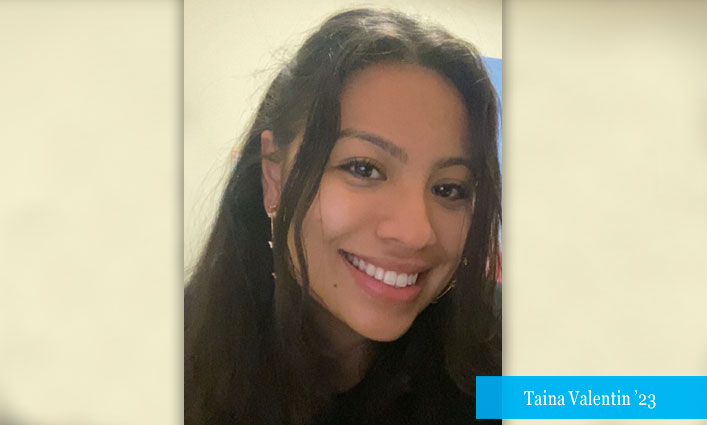
July is National Minority Mental Health Awareness Month. In an effort to explore the unique mental health struggles faced by members of racial and ethnic minorities face in the United States, we held a roundtable discussion focused on BIPOC (Black, Indigenous, and people of color) students’ mental health experiences.
About Taina…
Major: Political Science
Hometown: Brooklyn, New York
Current Role: Macaulay Honors student working three jobs and studying for the LSAT.
Future Plans: To become a lawyer.
What unique mental health struggles do BIPOC people face?
One of the biggest problems is microaggressions in the workplace. I work in customer service in a predominantly white neighborhood. I’m the only Latinx person working there and customers talk to me in a demeaning way, as if I were an animal. They demand things and point at me. Meanwhile, they interact completely different with my white co-workers, speaking to them respectfully and kindly. They don’t notice that shift in their tone when they’re talking to me, but I do. After a rude interaction with a customer, I think about how they treated me all day. It’s had a massive impact on my mental health.
What challenges do minorities face when talking about their mental health?
If you’re Latinx, specifically first-generation, talking about mental health is difficult because it’s generally not discussed in the home. If you bring it up, you’re told that it’ll pass and it’s not that serious. We also compare our struggles with our parents’ immigration challenges. They came to this country and faced incredible obstacles. You discount your problems because theirs seem much more difficult.
“Before John Jay, I thought I was the only one going through some of these mental health struggles. I know now that I’m not alone.” —Taina Valentin ’23
How did attending John Jay—a Minority-Serving and Hispanic-Serving Institution—positively impact your mental health?
I have never seen a Latinx student population as big as the one here at John Jay. I grew up in a white neighborhood and went to predominantly white schools. I didn’t have any teachers of color until my senior year of high school. When I finally got to John Jay, I met other people who were like me and had similar experiences. They allowed me to express myself, free of judgement, and just talk about the challenges I’ve faced. Before John Jay, I thought I was the only one going through some of these mental health struggles. I know now that I’m not alone and that there are safe spaces at the College where I can speak freely about what I’m going through.
The poet Audre Lorde once said, “Caring for myself is not self-indulgence, it is self-preservation.” How do you practice self-care?
I have Post-it Notes with positive affirmations all over my mirror. When looking into a mirror, it’s easy to critique every flaw you have and overlook everything great about you, both physically and internally. Reading those affirmations has been uplifting for me. They remind me of the positive qualities I have.
“It’s okay and healthy to take a break.” —Taina Valentin ’23
I have a lot on my plate. Sometimes I find myself unable to rest and even feeling guilty about resting; but I recently heard a podcast that said, “rest is productive.” I’m trying to incorporate that motto into my life. I lay down for 15 minutes after doing something intense. Those 15 minutes remind me that it’s okay and healthy to take a break.
Students can set up a confidential meeting with a trained mental health professional, free of charge, through our Wellness Center. Faculty and staff can access free, confidential, emotional health, and wellness services through the CUNY Work/Life Program.



